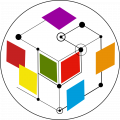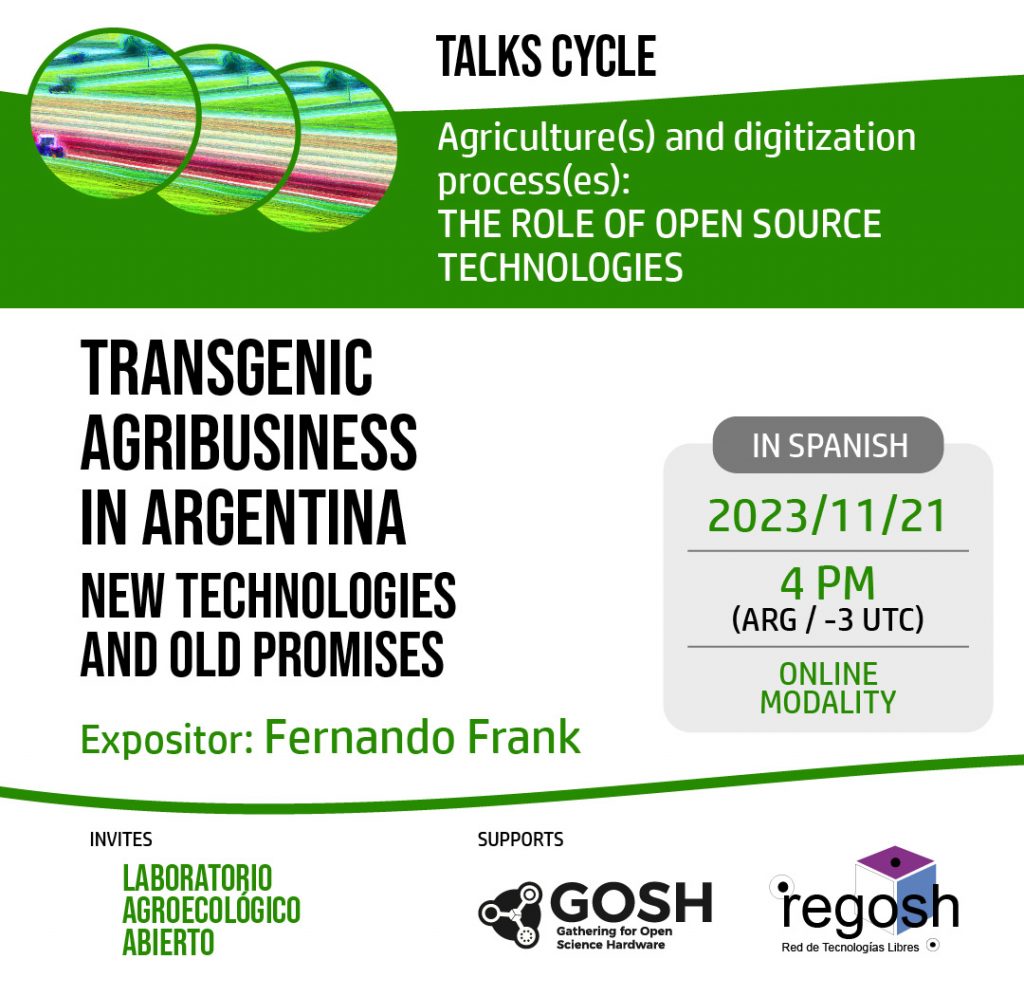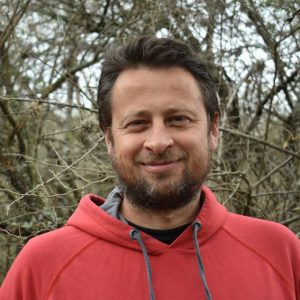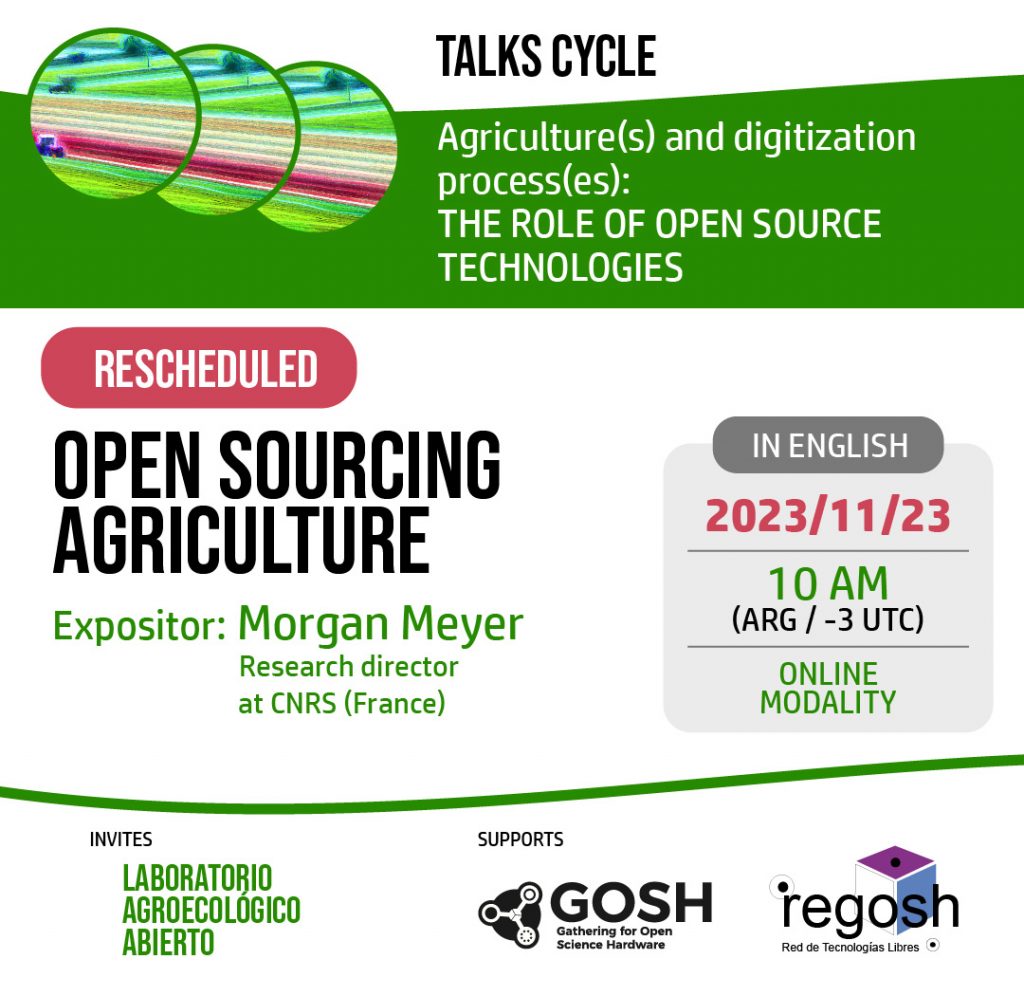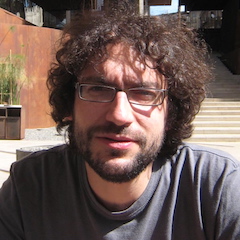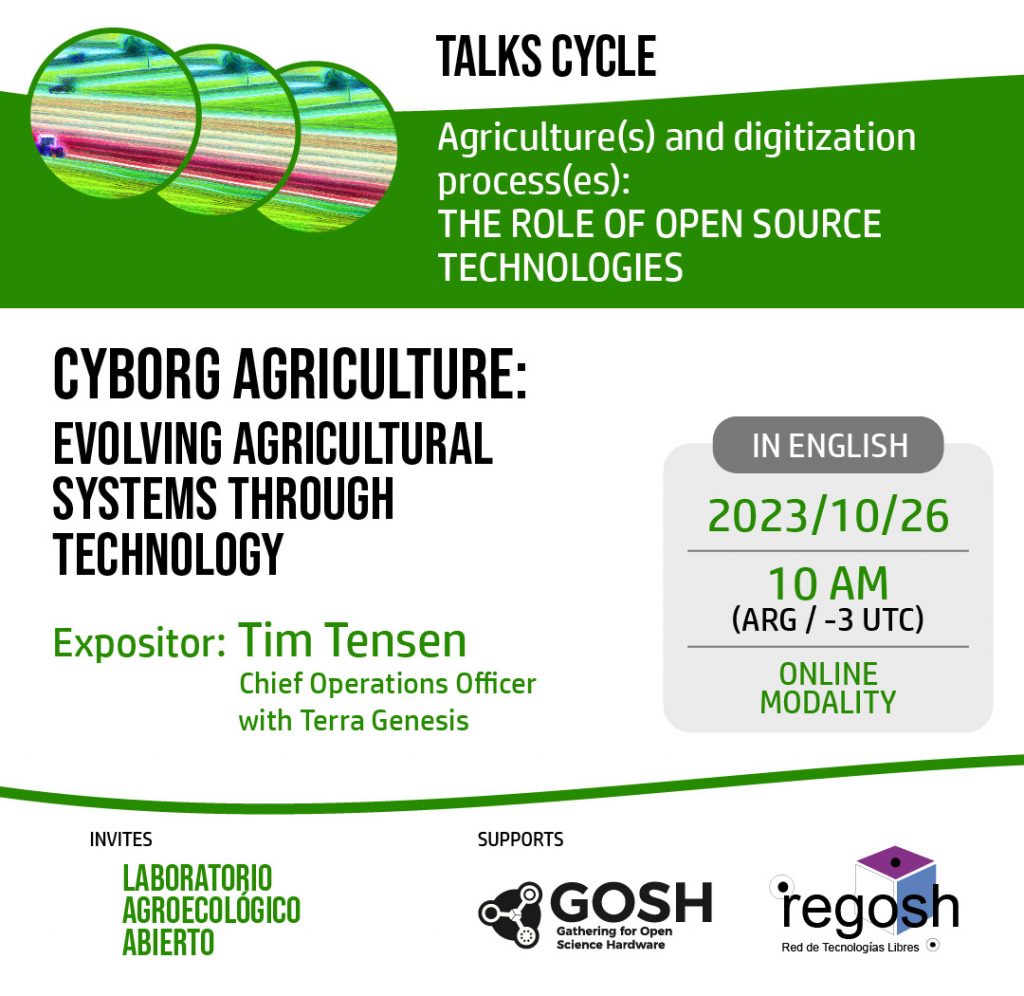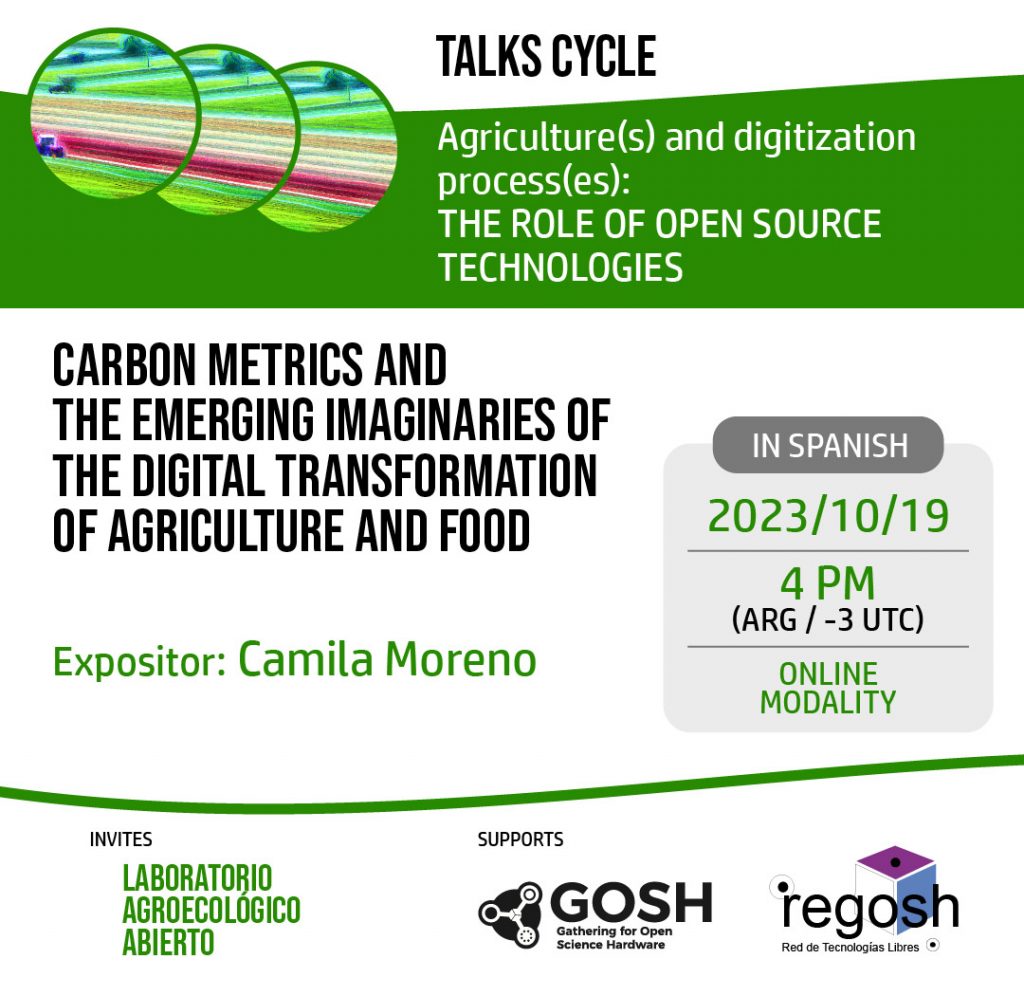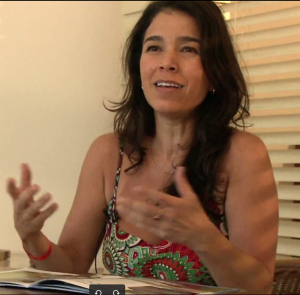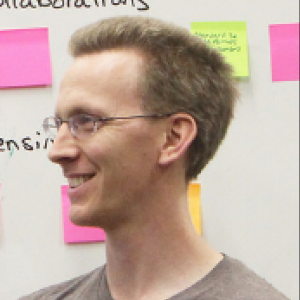
From the Open Agroecology Lab we are organizing a series of talks to address different aspects of the digitalization and commodification of agriculture from different perspectives to understand the implications it may have for small farmers and the development of agroecology in the region. Furthermore, we want to understand which role might open source technologies play in supporting those processes.
introduction
Agriculture is immersed in a strong digitalization process at a global level with a clear role of large agro-tech corporations. The digitalization process implies, among other things, the atomized generation of data on each stage of the production process. The analysis and interpretation of the information generated are considered as key elements for a greater operational efficiency and precision, but this data would also facilitate the integration into global markets for ecosystem services. Critics of this process indicate that its deepening implies both the continuity of the current production system and the emergence of a platform economy model aimed at increasing the monopoly of corporations, not only in agriculture but in all the food production chain. We believe that in this context it is essential to discuss the governance of digitalization processes that are implemented within agriculture.
In this sense, various organizations of peasants and small producers, networks of activists and scientists who promote food sovereignty have been warning about the progress of said digitalization process for some time and have begun to look for frameworks and forms for a possible autonomous digitalization of alternative production systems (e.g. regenerative, agroecology), which will produce or allow access to (some of) the benefits of this digital revolution of agriculture; this without relinquishing sovereignty over data or being trapped in locked technologies designed from the logic of capital accumulation as the sole objective of food systems. Thus, they highlight that digital technologies developed using bottom-up approaches, transdisciplinary and participatory processes could respond to the real needs of agroecological users, and that the opening of these developments in open source formats would allow their democratization, as well as new forks to adapt to the problems of food systems in different contexts.
format of the talks
Talks will be open, in virtual format via Zoom platform and will have a duration of 1 hour aproximately.
The language of the talks will be english or spanish depending on the invited speaker. The talks will be recorded and published with translated subtitles.
tALKS
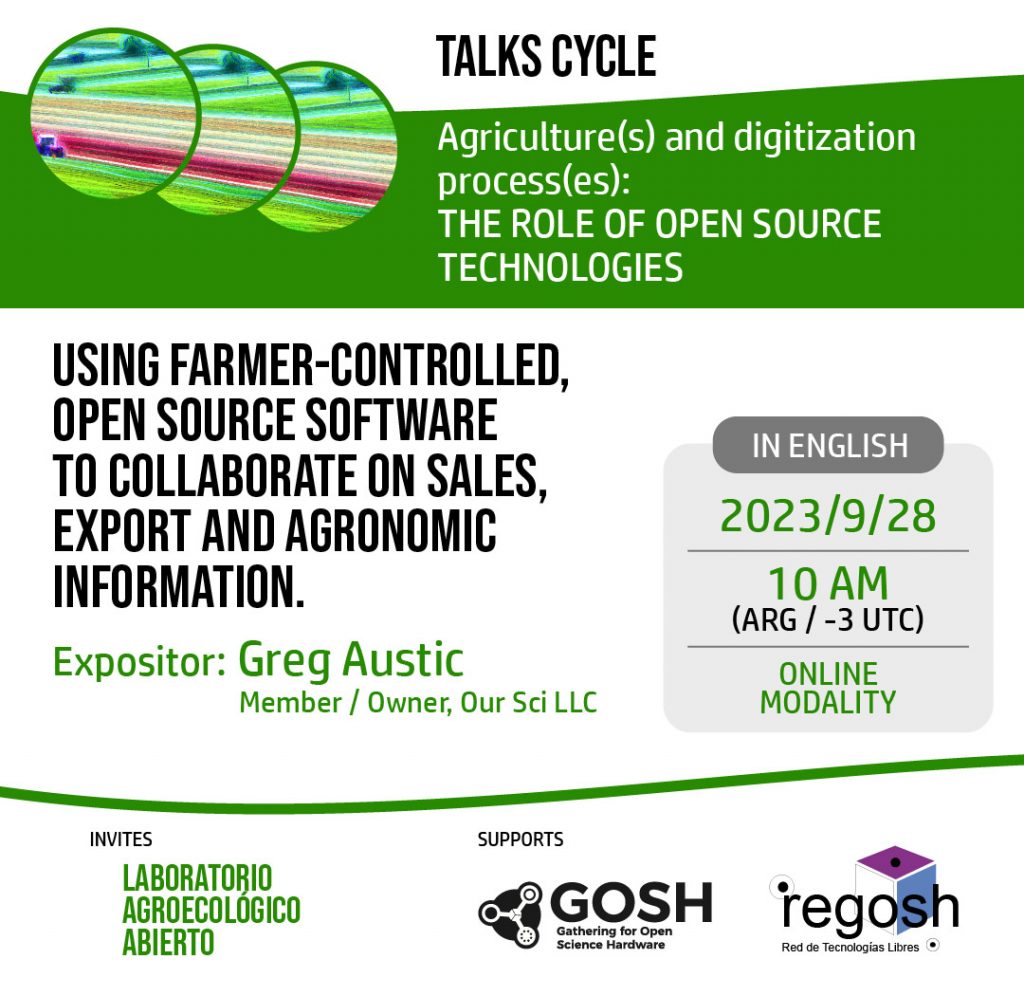
More talks soon
